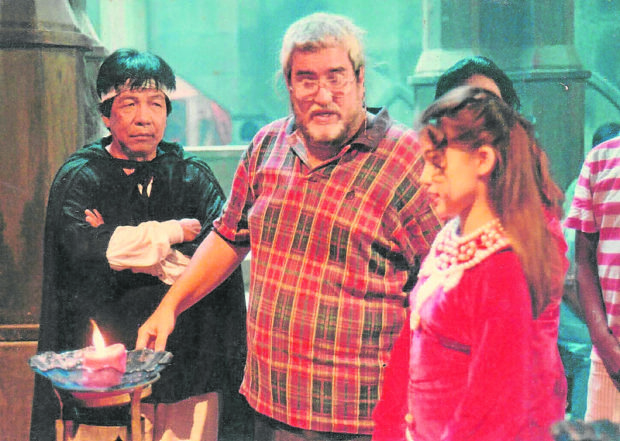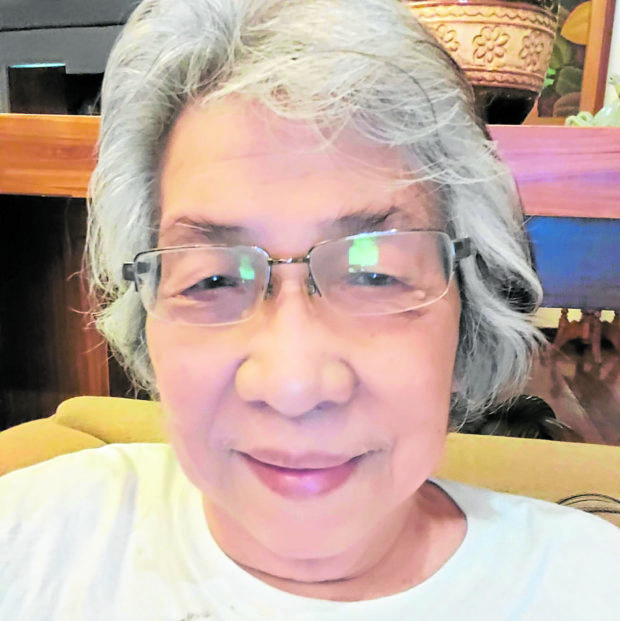“I feel that I’m about to board [my final flight] soon,” said actor-director Jun Urbano, who celebrated his 80th birthday in June. “I still have a lot of dream projects to make, but I feel that my body isn’t as strong as it used to be.”
Prior to the lockdown in March, Urbano had been busy looking for producers for his next film, with the working title “Now Na,” which is about “how a millennial, who is born to Filipino parents but raised in the United States, has learned how to love the Philippines as a country.”
Urbano, who also wrote the script, said that “if I finish this project, then I can exit this world a happy and content person. It’s my main goal at the moment. But when the pandemic happened, I felt like I was given a life sentence. My two sons and grandkids refused to let me go out of the house. It annoys me whenever they’d spray my slippers with alcohol. This is what it feels like to be in solitary confinement,” he quipped.
Urbano, who is best known for his creation and portrayal of Mr. Shooli in his political satire show “Mongolian Barbecue” in the late 1980s, celebrated his birthday on June 8 at home by sharing a meal of pancit Malabon, puto’t kutsinta, and tokwa’t baboy with his family.
He didn’t accept any visitor, he stressed. “I spent three nights in a row answering all the birthday greetings I got on Facebook. That really helped me fight boredom. It’s only now that I’ve received messages from so many people, even from those I haven’t heard from for so long like my classmates in elementary, as well as from those I don’t remember ever meeting at all in the past. Since these people took pains in greeting me, I said I’d patiently answer them all,” he shared with Inquirer Entertainment.
Urbano has had a successful quintuple heart bypass a couple of years back. He is also effectively managing his COPD, or chronic obstructive pulmonary disease. “I’m not as strong as I used to be. I would find myself catching my breath after a short walk. But I’m still being extra careful because I really want to still be able to make the movie,” he stressed.
On television, Urbano was last seen in the long-running action-adventure TV series “FPJ’s Ang Probinsyano.”
“As Filipinos, we still have a lot of things to change in our culture. I think that the local entertainment industry, instead of just making people laugh, should also aim to educate them,” Urbano declared. “Film is a very powerful tool. We only need to include subliminal messages in our projects. Let’s not be content with just making money.”
Urbano is the eldest son of the late National Artist for Film Manuel Conde, who directed films like the “Juan Tamad” series (1940 to 1960) and “Genghis Khan” (1950), which is the first Filipino movie to have joined an international film festival (1952’s Venice Film Festival).
While most people know him as an actor, Urbano had also directed over 2,000 TV commercials in a career that lasted for 40 years.
Urbano said how he thinks as an artist is greatly influenced by his father, as well as the latter’s best friend, National Artist for Visual Arts Carlos “Botong” Francisco.
“Daddy expressed his love for the country through his movies. His works were almost always about Filipino culture like ‘Ikaw Kasi’ (1956), which was about the coconut industry. ‘Bahala Na’ (1957) tackled the mining industry in Daet, Camarines Norte. ‘Tingnan Natin’ (1958) featured the bakya factories in Paete, Laguna,” Urbano explained.
“He was unaware of the effect of his creations on people. I think he was named National Artist because no filmmaker was able to duplicate what he had achieved. He was actually the first indie filmmaker,” Urbano declared. “While the old film studios like Sampaguita and Premiere churned out formulaic stories—a rich city boy falls in love with a barrio lass—my dad made movies about the German literary hero Siegfried and the Mongolian conqueror Genghis Khan. I guess he just wanted to put Botong Francisco’s talent as production designer to good use.”
Sadly, Urbano said none of his sons—Manolito, Ramon, Christian and Morado—followed in his footsteps. “Even my grandkids show no interest in the field of directing and acting. Luckily, I was able to teach most of the known TV commercial directors of today. I consider them my own,” he declared. INQ



